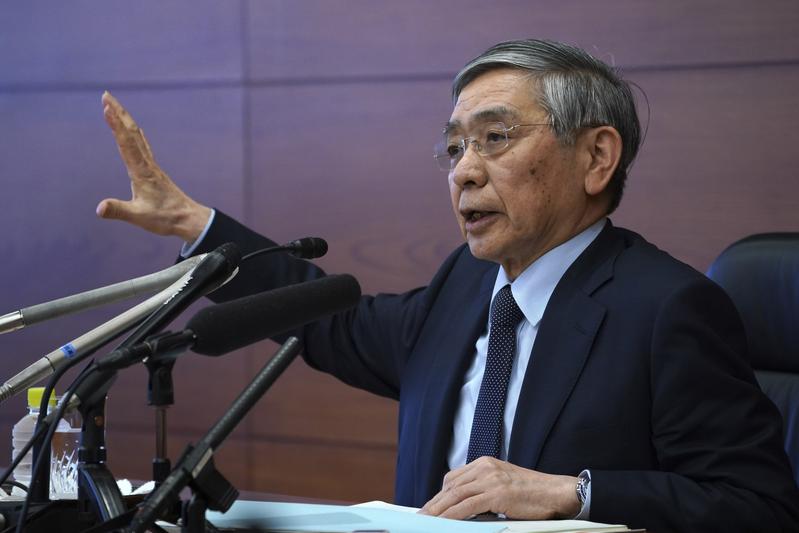 In this March 16, 2020 file photo, Bank of Japan Governor Haruhiko Kuroda speaks during a news conference in Tokyo. (EUGENE HOSHIKO / AP)
In this March 16, 2020 file photo, Bank of Japan Governor Haruhiko Kuroda speaks during a news conference in Tokyo. (EUGENE HOSHIKO / AP)
TOKYO - Bank of Japan Governor Haruhiko Kuroda will receive a meager 0.4 percent pay rise in 2022 after two years of cuts, the central bank said on Friday, even as he has stressed the need for higher wages to sustainably meet the central bank's inflation target.
READ MORE: Inflation in Japan's capital rises at fastest pace in 40 years
The 0.4 percent pay rise for the current fiscal year ending in March 2023 will apply to BOJ executives, including Kuroda and his fellow board members. It will consist entirely of executive allowances with no increases to monthly salaries, the BOJ said in a statement announcing the annual pay revision.
Kuroda has repeatedly called on companies to boost wages next year and beyond, preferably by around 3 percent annually, to compensate households for the rising cost of living and pave the way for Japan to sustainably achieve the central bank's 2 percent inflation target
The decision underscores the challenge of driving up wages in a country accustomed to decades of grinding deflation or low inflation, which makes it hard to justify raising pay.
But, more recently, rising raw material costs and surging import prices from the weak yen have pushed up inflation, hurting many households that have yet to see wages rise much.
Core consumer prices in Japan's capital, a leading indicator of nationwide trends, rose 3.6 percent in November from a year earlier to mark the fastest pace in 40 years, data showed on Friday.
Kuroda has repeatedly called on companies to boost wages next year and beyond, preferably by around 3 percent annually, to compensate households for the rising cost of living and pave the way for Japan to sustainably achieve the central bank's 2 percent inflation target.
ALSO READ: Japan's economy shrinks as inflation, slowdown take toll
After rising just 0.3 percent last year, private nominal wages have been creeping up this year and increased a revised 2.2 percent in September from a year earlier due partly to intensifying labor shortages, according to government data.


